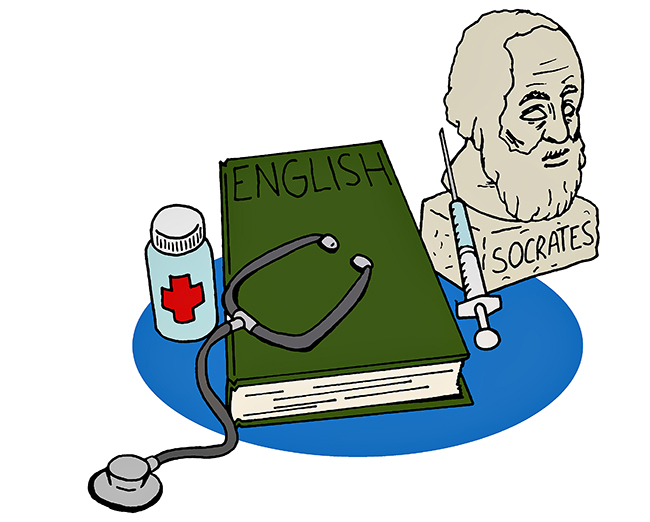Health care is not just science and steady hands. Because of an archaic educational model which only focuses on scientific methodology, most medical professionals aren’t able to realize this. While the current system may have been successful in producing doctors that are able to understand the science behind health care, there still exists room for improvement in the delivery of health care. It’s time for a change.
In the early 1900s, Abraham Flexner, a reformer of American medical education, developed an educational model for medical schools. The system focused solely on the scientific methods of physiology and biochemistry. However, because of the ever-changing nature of medicine, medical instructors are determined to change this model. Rather than focusing on purely anatomy and physiology, classes are being taught in communication and psychology.
Stephen Scheibal, director of media relations and community engagement at the Dell Medical School, said the medical school has the opportunity to be a leader in this.
“The Dell Medical School has a distinct advantage in that it is being created from scratch and can be entirely designed around the needs, challenges and opportunities of 21st century health and medicine,” Scheibal said. “We’re looking for students from a range of backgrounds who have shown leadership in different areas.”
This is not limited to the Dell Medical School. Various medical schools all over the nation are actively looking for students with interdisciplinary backgrounds. With a growing trend in appreciation for well-rounded people, almost anyone can become a doctor.
However, the revolution doesn’t end there. Learning on an individualistic level may help medicine progress on a small scale, but the greatest fruit comes from learned, diverse people working together. Physicians must be able to function as one unit in order to solve the systemic problems within health care.
Lesley Riley, director of UT Health Professions Office, said she believes teamwork is imperative in transitioning to this new field.
“We need physicians who can contribute successfully to interdisciplinary treatment teams as we move towards a system focused on fee for outcome,” Riley said. “This means today’s physician must embrace a diversity of opinions and ideas and be effective at facilitating collaboration.”
At a Q&A with the Tejas Club, UT President Greg Fenves said the Dell Medical School is completely changing how interviews are conducted. Rather than individually getting asked questions, applicants work as a team to solve a problem.
Here’s the catch — the problem is unsolvable. How the applicants tackle the issue is how they are evaluated.
Similar to most modern movements, students are the core. With the new desire for doctors that have both an interdisciplinary education as well as the ability to collaborate, major improvements in health care are inevitable. A revolution is happening in medicine, and anyone can be a part of it.
Syed is a biochemistry freshman from Houston. Follow him on Twitter @mohammadasyed.





















